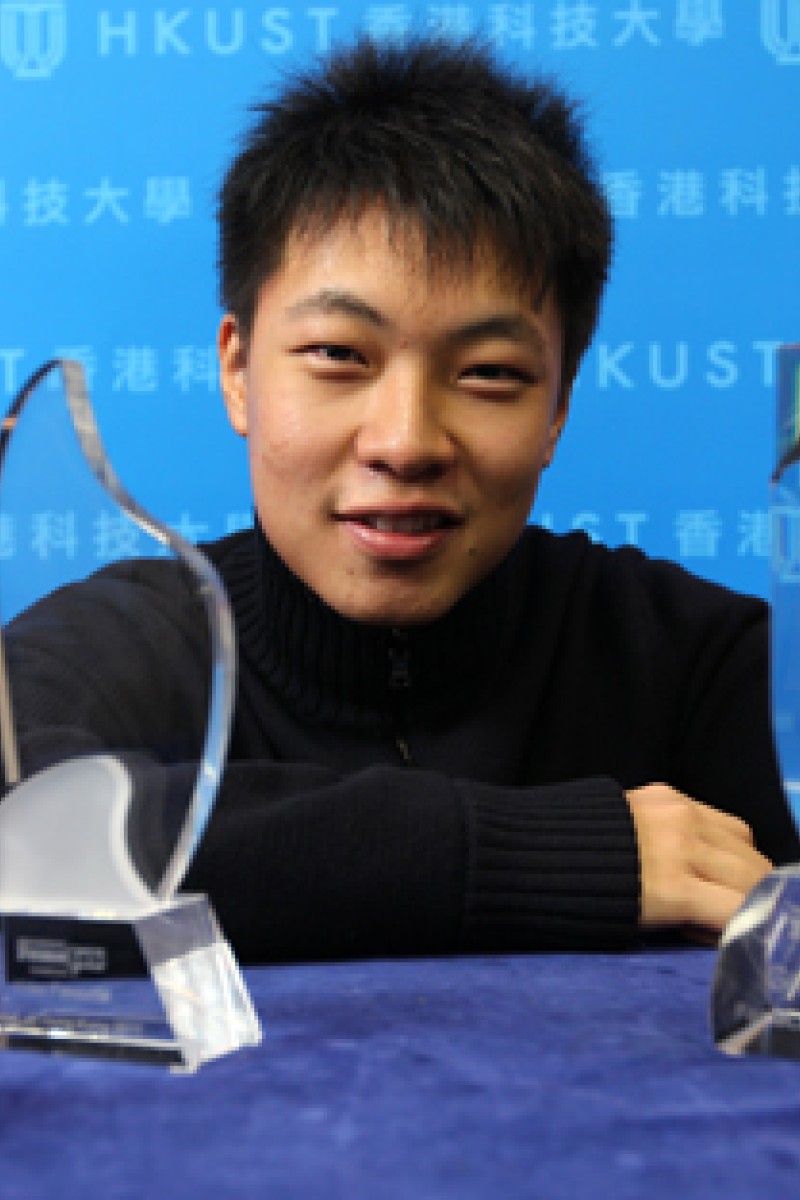 Biochemistry student Colin Tsang Kwok-wan shows off his prizes from November's Hong Kong FameLab competition.
Biochemistry student Colin Tsang Kwok-wan shows off his prizes from November's Hong Kong FameLab competition.He fractured two bones in a skiing holiday mishap, coughed up blood after taking a swig of strong alcohol and severely twisted his foot in an ice-skating accident.
During every visit to the hospital, Tsang was amazed by how doctors could stitch up his wounds and help him heal.
His experiences - and the fact he was born into a family of doctors - sparked his interest in how the human body functions - a fascination that led him to study biochemistry at the University of Science and Technology.
Tsang has proved he's a cut above the rest. His ability to make science accessible to the public won him the grand prize in the November qualifier of the British Council's FameLab competition, earning him the chance to represent Hong Kong in the finals in June.
"Science is closely related to human beings," Tsang says. "It penetrates every aspect of life. If we know what pills do, how cells work and what nutrients our food gives, we can benefit from this."
The second-year student enjoys reading up on subjects - with pathology and genetics as his favourite fields - and applying them to everyday life. The idea of conducting experiments alone in a lab holds no appeal, as he likes discussing scientific theories with his teachers and friends over tea. He says: "I like to teach my friends why drinking too much milk tea will cause kidney stones and how consuming coffee causes brain dehydration."
Yet Colin thinks scientists and researchers are not doing enough to help ordinary people understand scientific concepts - a problem that events like FameLab tries to rectify.
The competition was the perfect stage to showcase Tsang's talent. During his presentation, he tried his best to avoid complicated scientific terms, knowing that only concepts mattered to the audience and that complex words would be quickly forgotten. "I hope the audience will [get to] know science better and will take away something useful after the competition," he says.
FameLab contestants are given three minutes to explain a scientific, engineering or mathematical topic using only body language and a limited amount of props, without the aid of PowerPoint. Colin chose two topics: one about chromosome cells that determine a baby's gender and the other about a molecule called ATP, which gives the body energy.
"Under a limited time frame, we have to engage the audience's interest quickly and make the topic relevant," Tsang says.
He illustrated how ATP works by talking about how his friends consume coffee or energy drinks to stay awake for work or studying overnight. "I'm sure everyone has asked at some point why caffeine can provide energy," he says. "I joked that ATP means 'always truly professional' to make listeners remember it easily."
His speech on the energy-giving molecule, which he practised and perfected with the help of English teachers as well as friends from business and engineering schools, won him not only the FameLab grand prize, but also the audience choice and video favourite awards.
In the FameLab finals in Britain, Tsang plans to speak about recent scientific finds or the hottest debates, such as stem-cell research and the heart's memory cells - and he will surely do it with passion.
See Colin's winning speech
